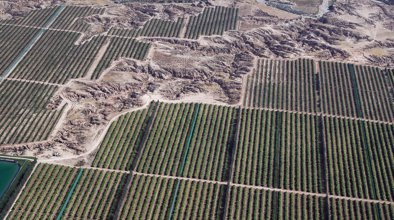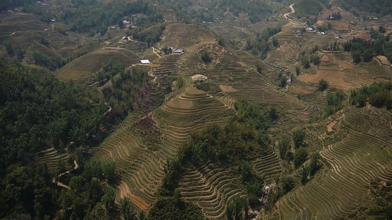DIRECTOR’S NOTE
As each citizen of our planet, I can see the consequences of the climate changes in progress…
Along travels, but also through my local environment watching, I was aware of the dramatic ecological and social damages incurred,
mainly by the South countries, but also now by the North, as a result of the overexploitation of natural and human resources.
I have specifically noticed the growing uniformity of landscapes on all continents, due to large scale industrial monocultures.
The extension of degradations on natural ecosystems made me understand that climate change and its consequences could not be explained only by the greenhouse effect from fossile energies.
In 2000, I met Michel Kravcik in Vancouver, during a global Forum on water issue, organised by the Council of Canadians.
He was awarded a Goldman Environmental Prize in 1999 for his successful opposition against the construction of a dam in Slovakia.
His researches on alternative solutions had led him to focus on an underestimated process and still complex to assess scientifically:
the disruption of the small water cycles.
When I heard in 2013 that Michel Kravcik had published a book, I decided to illustrate his theory and to develop this complementary vision on the climate change.
I was highly inspired by the optimistic sides of this complementary vision.
The resilience capacity of Nature is extraordinary.
By respecting the Nature fundamental processes,
we will find the simple, efficient and rapid solutions
that we really need.
If the action against climate change remains focused only on greenhouse gases, it will result in a political and economical deadlock,
creating an anxious mistrust among worrying populations.
Opening the debate on the various origins of the climate change, connecting shared experiences and perceptions,
despite different geographical and cultural contexts, offering reasons for hope and opportunities to take action:
these are the goals of my documentary.


ABOUT THE DIRECTOR
Valérie Valette was born in France [Haute-Loire].
She was involved in several civil society movements on the water thematic.
In France, she was one of the co-founders of the opposition movement to the construction of 7 dams on the Loire river in the 1980s.
In Spain, she fought with Aragonese and Catalans citizens against the Spanish Hydrological Plan in the early 2000s.
Both movements achieved victory and were awarded a Goldman Prize, which is the equivalent of a Nobel Prize for ecology [1992 & 2003].
She worked with ERN [European Rivers Network], the Fundacion Nueva Cultura del Agua, the Fondation France-Libertés, the Coalition Eau-Bien Commun
and was a member of the national organizing committee of the Alternative World Water Forum[FAME, Marseille 2012].
She is now making a series of documentaries – « Flowers of the Future » –
introducing alternative local and global scales solutions
with a positive and optimistic view.
The first documentary “Flower of the Future: Agua Boa” [Agua Boa: good water in portuguese]
is about participative democracy and water management, thanks to a large scale progressive socio-environmental programme in Brazil.
Danielle Mitterrand and Leonardo Boff supported this first movie.
“Flowers of the Future: Dobra Voda” is the second documentary of the series.
Presented in several international films Festivals, (Fife at Paris (France), Fidadoc at Agadir (Marocco), Ecozine at Zaragoza (Spain)…), the movie received on june 2018 a silver trophy at the Green Awards Festival of Deauville.
On march 2019, it was nominated for the Tournesol Price at the Green Film Festival (Lausanne/Zurich) and screened in 11 Swiss cities.

